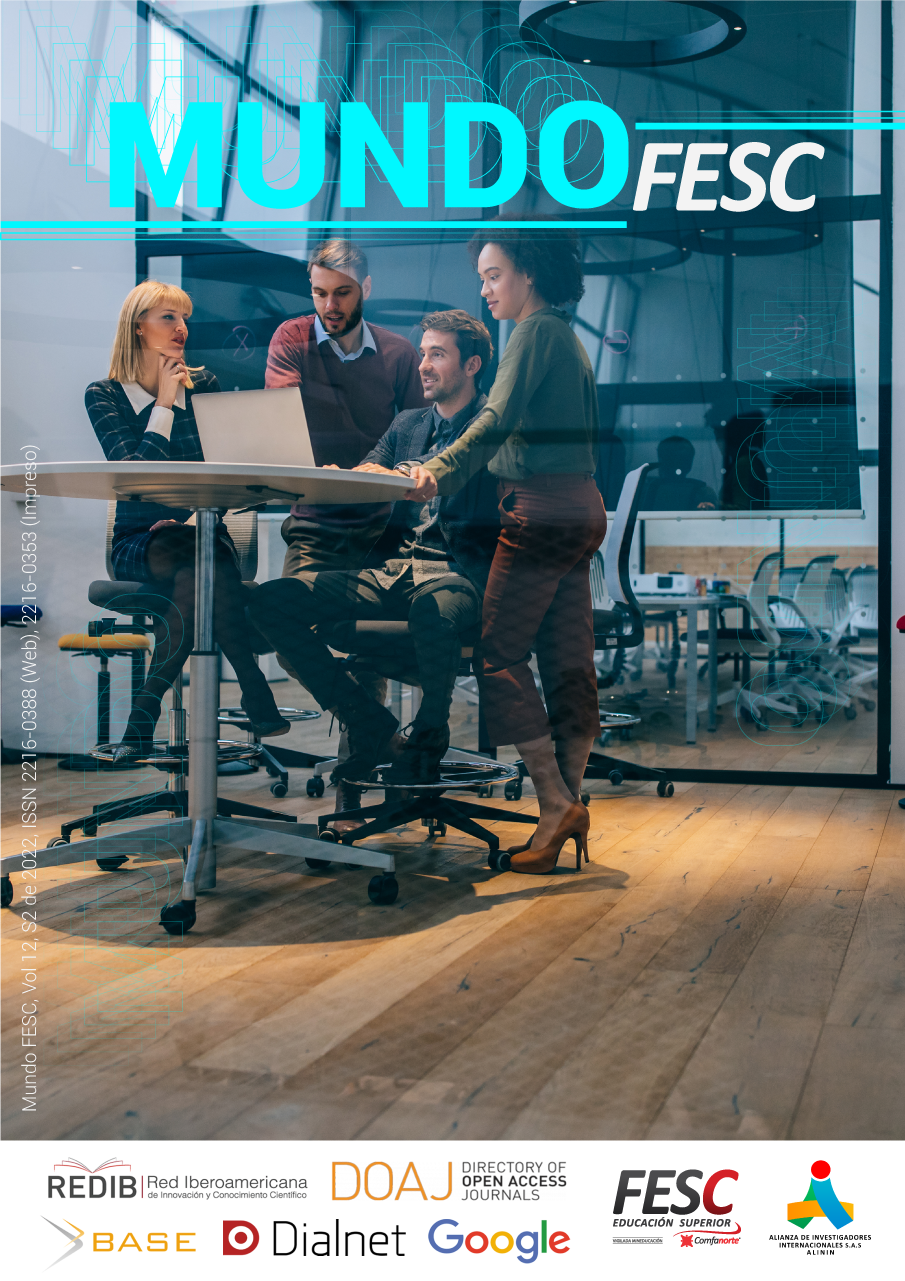Education in the Catatumbo: teaching performance and context
DOI:
https://doi.org/10.61799/2216-0388.1158Keywords:
Catatumbo, competences, speech, teacher, qualityAbstract
The present investigative study relates the statements and the way in which they determine the concept of quality of the subject that educates in the Catatumbo region. Given this particularity, this qualitative study requires a hermeneutic approach, by motivating the understanding of actions in contexts, the illustration made by a teacher in response to real and specific situations is glimpsed. From the statements, the emerging codes related to Psychological Competences, General Competences, and Specific Competences are revealed. An important conclusion of the study is that its results recognize the profile that teachers have based on quality, which allows defining human resource training programs and pointing out the contributions that stimulate public policy in this region. The basic performances of the teachers are imposed by the reality that is particularized and lived in this area, you constantly learn to read reality, to propose new interpretations, and to create various strategies that give way to the nonsense of reality. same reality. The specific performances are based on diversity and difference as necessary spaces to rethink the conflict from the argument and not force as the only response. The generic performance of teachers indicates a constant pedagogical innovation that induces new practices in the way of responding and in the way of exercising leadership.
Downloads
References
J. Proenza, C. Lozano y S. Serrano, “Herramienta tecnológica para la comprensión disciplinar de la investigación científica en estudiantes sordos”, en Tendencias en la Investigación Universitaria. Una visión desde Latinoamérica, en Chirinos, Y., Ramírez, A., Godínez, R. Barbera, N. y Rojas, D., 2021.Vol. XVI. Fondo Editorial Servando Garcés. Doi: 10.47212/tendencias2020.26
F. Vásquez, El que hacer docente. Bogotá: Universidad la Salle Bogotá. 2016.
S. Tobón, Competencias, calidad y educación alma mater, Bogotá: Magisterio Bogotá, 2006.
F. Vargas, La formulación basada en competencias instrumento para la Empleabilidad. Biblioteca virtual de la OEI Corporación para el desarrollo de la educación básica Argentina 2000.
A. Edward, El concepto de calidad en educación Santiago de chile, Unesco, 1991
G. Villamizar, C. Toloza y A. Rodríguez, Autoevaluación gestión y calidad de la Educación, UFPS, (2017).
CONPES, “Estrategia de Desarrollo Integral de la región del Catatumbo” (3739), 2013. Disponible en: http://corponor.gov.co/publica_recursos/POBLACION_VULNERABLE/ Conpes_3739_ de_2013.pdf
DANE, Proyecciones de población municipales por área 2005-2020”, 2005. Colombia. Disponible en: https://www.dane.gov.co/index.php/estadisticas-por-tema/demografia-y-poblacion/proyecciones-de-poblacion
Centro de Memoria Histórica , “Memorias de vida y dignidad”, 2017.Disponible en: http://www.centrodememoriahistorica.gov.co/micrositios/catatumbo/index.html
M. Pacheco, “El Catatumbo se descuaja”, 2012. Disponible en: https://www.kienyke.com/kien-scribe/el-catatumbo-se-descuaja
Ecured Conocimiento con todos y para todos (6 de octubre de 2018). Catatumbo Disponible en: https://www.ecured.cu/catatumbo
G. Campero, Investigación en las ciencias sociales, Universidad Piloto de Colombia Bogotá, 2013.
R. Hernández y. B.Collado, Metodología de la investigación, D.F: McGraw-Hill Interamericana., 2014, pp. 1-656.
J. Duarte, Introducción a la metodología de la investigación científica. España: Brujas, 2008.
G. Ugas, La cuestión educativa en la perspectiva sociocultural. Venezuela: Ediciones del taller permanente San Cristóbal, 2003.
M. Jaimes, L. Galvis, y M. Güiza, “El dilema de la guerra o la paz: representaciones sociales sobre la paz de jóvenes del colegio San José de Cúcuta”, Perspectivas, vol. 4, no. 2, pp. 31-38, 2019.
M. Patiño, “La investigación sobre género y conflicto armado”, Revista Eleuthera, 3, 127-164, 2009.
J. Chaparro, M. Jaimes y R. Prada, “Modernidad y Educación: Una reflexión a propósito de sus legados y desafíos”, Perspectivas, vol. 3, no. 2, pp. 121-132, 2018.
A. Demetrio, “Movimientos sociales y Trabajo Social: El latido de la realidad nos convoca a la conciencia, a la presencia y a la alianza”, Servicios Sociales y Política Social, vol. XXX, no. 103, pp. 97-105, 2013.
Downloads
Published
How to Cite
Issue
Section
License

This work is licensed under a Creative Commons Attribution-NonCommercial 4.0 International License.




